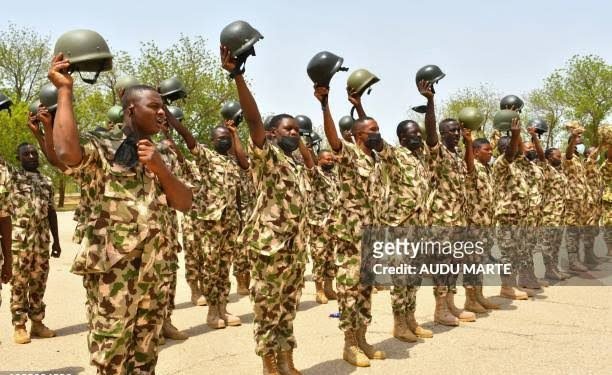Nigerian Soldiers Grumble Over Non-Payment of Allowances
Imagine dedicating your life to serving your country, only to find out that the allowances promised to you are not being paid. This is the harsh reality for many Nigerian soldiers today. The issue of non-payment of allowances has become a significant concern, affecting not only the soldiers’ morale but also the overall security of the nation.
Background
The problem of non-payment of military allowances in Nigeria is not new. Historically, there have been numerous instances where soldiers have had to protest or go on strike to demand their rightful dues. These allowances are crucial as they cover various expenses, including housing, healthcare, and other essential needs.
Current Situation
Recently, reports have surfaced about the non-payment of allowances to Nigerian soldiers. This has led to widespread dissatisfaction and frustration among the ranks. Soldiers have expressed their grievances, highlighting how the lack of financial support is impacting their ability to perform their duties effectively.
Government Response
In response to these reports, the Nigerian government has issued several statements, promising to address the issue. Measures such as budget reallocations and audits have been proposed to ensure that the funds meant for soldiers’ allowances are disbursed promptly. However, the effectiveness of these measures remains to be seen.
Soldiers’ Perspective
From the soldiers’ viewpoint, the situation is dire. Many have shared personal accounts of how the non-payment of allowances has affected their lives. Common grievances include the inability to pay for their children’s education, healthcare costs, and even basic necessities. The soldiers are demanding immediate action to resolve the issue.
Economic Factors
One of the primary reasons for the non-payment of allowances is the economic challenges facing Nigeria. Budget constraints and mismanagement of funds have significantly impacted the military’s financial resources. This has led to delays and inconsistencies in the payment of allowances.
Comparative Analysis
When compared to other countries, Nigeria’s handling of military allowances falls short. In many nations, soldiers receive their allowances on time, ensuring their financial stability and enabling them to focus on their duties. Nigeria can learn from these examples to improve its system.
Impact on National Security
The non-payment of allowances has severe implications for national security. Disgruntled soldiers are less likely to be motivated and effective in their roles, which can lead to lapses in security and increased vulnerability to threats. Ensuring that soldiers are financially supported is crucial for maintaining a robust national defense.
Public Reaction
The issue has garnered significant media attention and public opinion is largely in favor of the soldiers. Civil society organizations have also voiced their support, calling for immediate action to address the grievances of the military personnel.
Role of Military Leadership
Military leadership plays a critical role in mediating between the soldiers and the government. Leaders have been advocating for their troops, pushing for timely payments and better financial management. Their efforts are essential in bridging the gap and finding a resolution.
Legal Aspects
Legally, soldiers have the right to receive their allowances as stipulated in their contracts. Failure to pay these allowances can lead to legal actions against the government. Understanding these legal implications is important for both the soldiers and the authorities.
Future Outlook
Looking ahead, it is crucial for the Nigerian government to implement long-term solutions to prevent future occurrences of non-payment. This includes better budget management, regular audits, and transparent processes to ensure that funds are allocated and disbursed correctly.










![Portable Orders Assault On Car Dealer Over Delayed Vehicle Delivery [VIDEO]](https://accesspost.ng/wp-content/uploads/2024/09/Portable-120x86.jpg)


